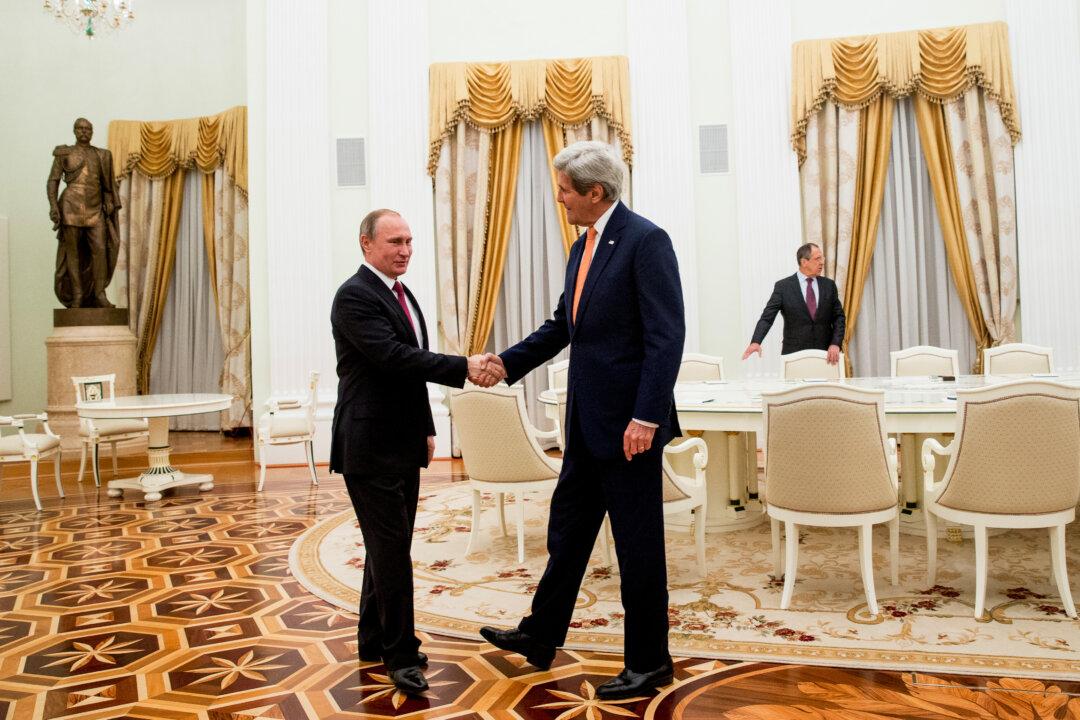MOSCOW — U.S. Secretary of State John Kerry on Thursday voiced hope that Washington and Moscow could narrow their differences on Syria and Ukraine as he sat down for talks with Russian President Vladimir Putin.
Kerry said he hoped the talks would be constructive and allow the nations to find a way to “rebuild and strengthen the relationship between the United States and Russia by proving that we know how to solve some serious problems together and building from there.”
Kerry hailed a U.S.- and Russian-brokered cease-fire in Syria, adding that it had allowed the Syrians “to taste and smell the possibilities of what it means to have a huge reduction in violence and to receive humanitarian assistance.”
“We obviously also have some ideas about this and how we can most effectively make progress in Geneva and begin the very serious and difficult work of the transition,” he said in a reference to Syria peace talks in Geneva.
In a playful start to the talks, Putin noted that Kerry walked off the plane carrying his briefcase himself and joked that he must have brought some cash to bargain with Russia.
Kerry replied, “When we have a private moment I will show you what’s in my briefcase and I think you will be surprised.”
Switching to a serious tone, the Russian leader said he hoped for a constructive discussion that would “allow us to make our positions on Syria and Ukraine closer.”






